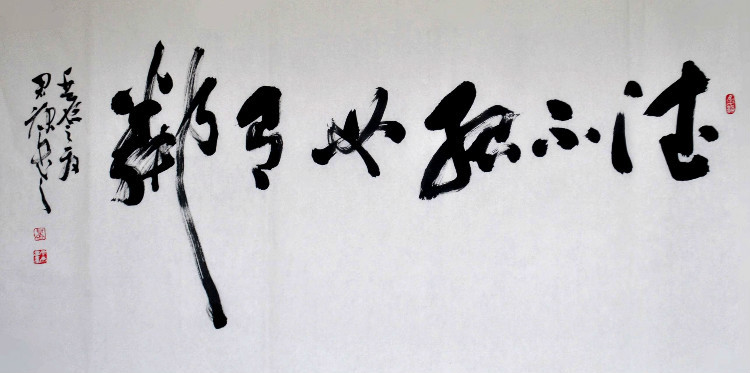There is a Chinese saying: giving is more blessed than receiving (施比受更有福). Is it true? Confucius reported so.
4.6 Virtue attracts alike
子曰、德不孤、必有鄰。
The Master said, ‘Virtue is not left to stand alone. He who practises it will have neighbors.’
* * *
I would like to share a personal story of charity here. One time, i heard of a practice of charity that one gives away the first money drawn out from the wallet, no matter the value of the note. I decided to give a try on this.
That evening, when i was approaching the San Francisco Symphony Hall, a young homeless person appeared on the street, asking me for changes. I opened my wallet, thinking of the exercise, and put a note. I looked at the note, it was a $10 dollar note. Hesitated for about a second, i handed it over to him. He was surprised, and grateful. When i departed, my heart was filled with love and warmth. At that moment, i was already contented with the result. But that was only the beginning. When i arrived the entrance of the symphony hall, a middle-age lady sensed that i was looking for ticket, approached me and gave me a complimentary ticket! Not only that, when i get inside the concert hall, i was told that the seat is on the first row. I watched the piano soloist perform right in front of me that evening. I was ecstatic!
Indeed it is true. When we give, it comes back to us ten folded and hundred folded. Confucius was right, those virtuous are not alone!古语云:施比“受更有福。是真的吗?孔子认为是真的。
4.6 德不孤、必有鄰
子曰、德不孤、必有鄰。
* * *
我想在这里分享一个我个人关于布施的故事。有一次,我听说了一个布施的练习:当在路上看到有人需要金钱的帮助时,从钱包拿钱时,无论抽出钱币是多大的面额,都将之送出。我决定将此一试。
那天晚上,当我接近旧金山交响乐团演奏厅时,一个年轻的露宿者出现在我的路前,并问我要零钱,我的考验来了。我拿出钱包,集中精神,随意的抽出了一张纸币…是一张10元的纸币。我犹豫了大约一秒钟的时间,便递给了他。他感到惊讶和感激。当我离开的时候,我的心里充满了爱和温暖,心里想他当晚应可吃饱了。在那一刻,我已经对这练习的结果感到心满意足。但是,这仅仅是个开始。当我到达交响乐大厅的入口处,一个中年女士感觉到我需要门票,便走向我,并给了我一张免费的门票!不仅如此,当我进入音乐厅时,我被告知我的座位在第一排。当晚,我就坐在钢琴家的面前欣赏他的独奏!我内心的激动实在是难以形容!
事实上,施比受更有福这句话是真的。我们的付出,会十倍,或百倍的回来。孔子是正确的,有德的人并不孤单!


Leave a Reply